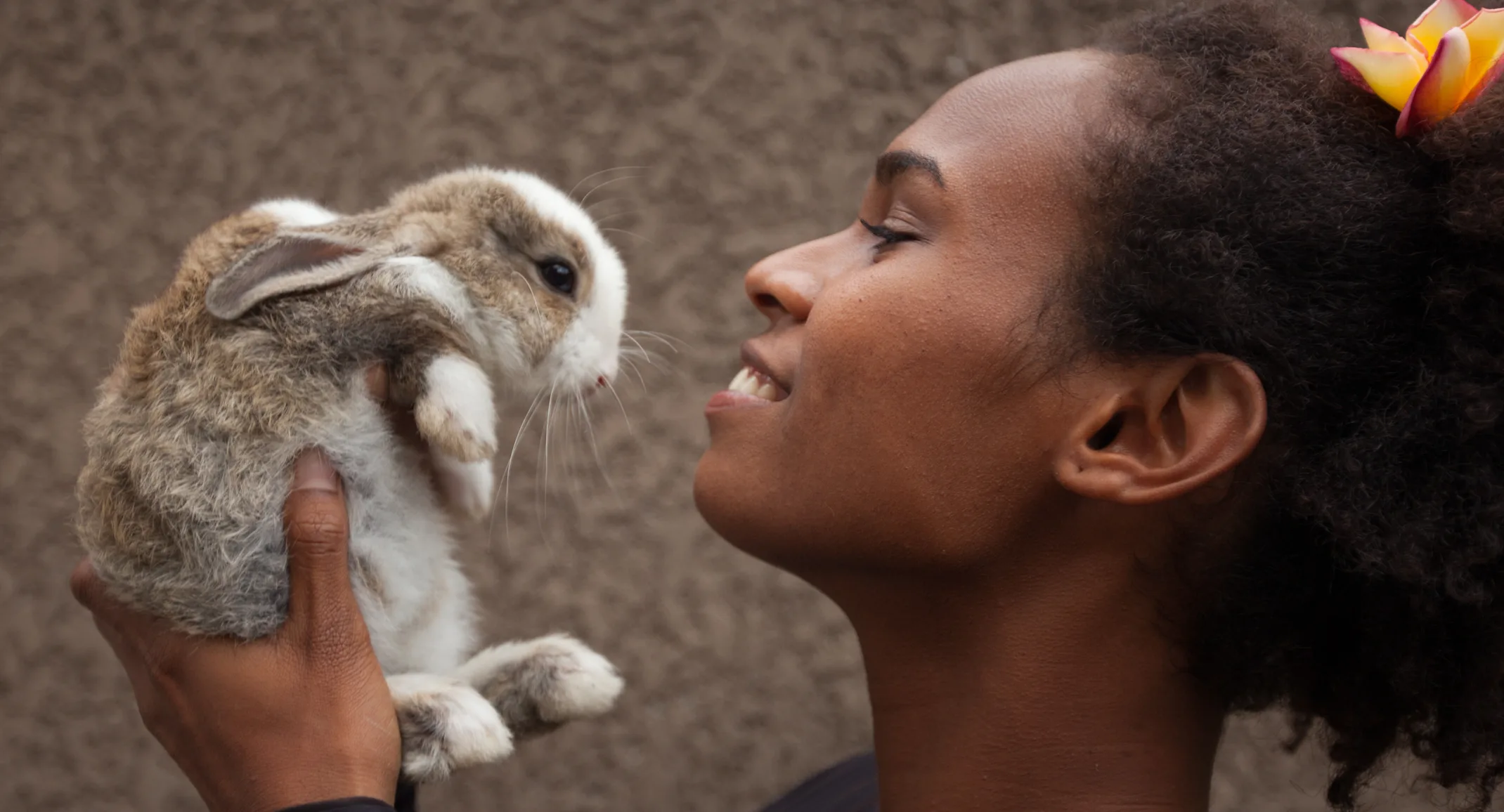Down the Rabbit Hole: Tips for Owning a Pet Rabbit
General

Although cats and dogs are the first companion animals people usually think of, rabbits and bunnies tend to become increasingly popular around spring time and the Easter holiday. However, many people don’t properly research what owning and taking care of a rabbit entails and oftentimes the rabbit gets abandoned or left at shelters. Below is some general information on what to know about rabbits and some tips on how to better your rabbit parenting skills.
WHAT TO KNOW
Domestic rabbits tend to live between 8 – 12 years
Baby rabbits are called kits (short for kittens), not bunnies!
They require a very specific diet (pellets, hay, fresh vegetables, and water)
They don’t need vaccinations like other domestic pets but do still need yearly veterinarian check-ups
Rabbits require just as much space as a dog or cat, even as much as free range of your home. Their home base or sleeping area should also be at least 4 – 6 times the size of your rabbit
They are social animals and require human and other rabbit companionship
Rabbits are chewers!
OWNER TIPS
First and foremost, do your own thorough research on owning domestic rabbits! Make sure every person involved is ready for the responsibility, especially young kids for whom the novelty can wear off quickly.
Secure a veterinarian; Lafayette Veterinary Care Center has several doctors that can see your rabbit!
Spay/neuter your rabbit! They live longer, happier, and healthier lives when spayed or neutered.
Bunny-proof their areas/your home: move all wires up high, keep houseplants out of their reach, and provide safe and rabbit-specific chewing alternatives. Always supervise your rabbit if you are letting them roam in an un-proofed area.
Socialize with your rabbit! They are naturally group animals and thus require lots of socialization and attention. They might be standoffish at first, but the more you interact with them the more comfortable and affectionate they will become with you.
Slowly but surely socialize your rabbit with other rabbits. They can be territorial and could even kill another rabbit if left together alone too long for the first time. To obtain the best bonding results, neutered adults of opposite sexes should be introduced for short periods of time in an area unfamiliar to both.
Provide interactive elements and enrichment. Rabbits, especially lone ones, can get easily bored which can lead to depression and/or excessive destruction. They particularly love tunnels, digging trays and chew toys; treat balls and boxes or tubes filled with their meals makes them work for their food and provides mental stimulation.
Do not pick up your rabbit! Rabbits are prey animals and can get extremely stressed when taken off the ground, especially when first introduced to humans and their owners. Once they become more acquainted with you, they might be more comfortable with being held for small amounts of time and close to the ground, but if they try to get away then let them go.
Keep house rabbits inside. Supervised outside time can be very beneficial for them, but prolonged outside time and outside housing poses risks for predators, theft, environmental exposure, and disease.
Don’t give excessive treats. Rabbits are much more sensitive to deviations from their recommended diet than other companion animals and thus could quickly become very sick.
Do NOT take baby bunnies from the wild! If you stumble across a rabbit nest—usually small holes in lawns, fields, or bushes—do not touch or move them. Mothers nurse only five minutes a day and leave the babies alone the rest of the time. Keep pets away from nests and monitor it to make sure it’s not flooded or insect infested.

